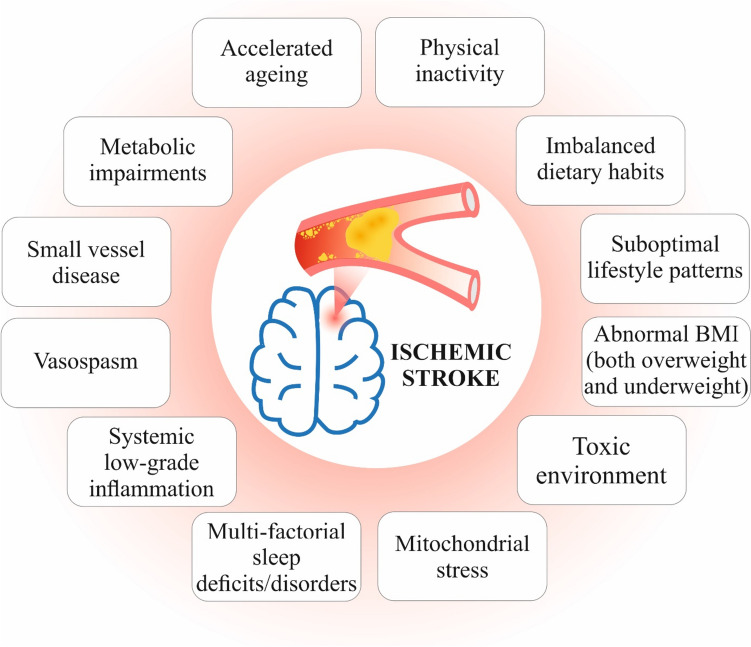Fig. 2.
Risk factors of ischemic stroke with sufficient space for cost-effective prevention interventions in primary (suboptimal health) and secondary (clinically manifested collateral disorders contributing to stroke risks) care; these risks are interrelated. For example, sedentary lifestyle and toxic environment both cause mitochondrial stress, systemic low-grade inflammation, and accelerated ageing; inflammageing is a low-grade inflammation associated with accelerated ageing and poor stroke outcomes. Stress overload, decreased mitochondrial bioenergetics, and hypomagnesaemia are associated with systemic vasoconstriction (vasospasm) and ischemic lesions in the brain, e.g. in case of the Flammer syndrome phenotype discussed later on in the article. Imbalanced dietary patterns poor in folate but rich in red and processed meat, refined grains, and sugary beverages are associated with hyperhomocysteinaemia, systemic inflammation, small vessel disease, and increased IS risks. In contrast, Mediterranean diet characterised by strong and systemic anti-inflammatory effects being rich in olive oil, nuts, whole grain, fruits and vegetables, and seafood consumption, but light on dairy and red/processed meat, is known to enhance anti- to pro-inflammatory ratio and to decrease IS risks [33]

